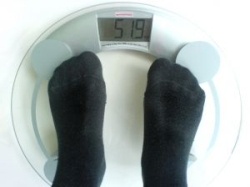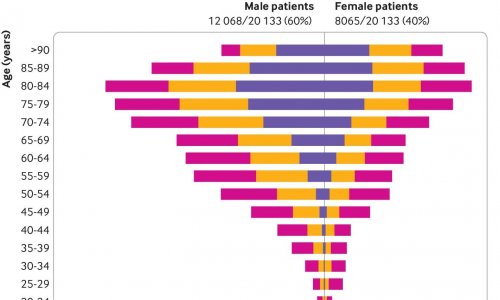Typ 2 Diabetes: Is low cholesterol associated with cancer?
Yes, it is, according to a prospective cohort study published in CMAJ. The study was conducted by researchers from the Hong Kong Institute of Diabetes and Obesity, the Li Ka Shing Institute of Health Science and The Chinese University of Hong Kong. Their result: A V-shaped risk relation between LDL cholesterol and cancer in patients not receiving statin therapy.

"LDL cholesterol levels below 2.80 mmol/L and levels of at least 3.90 mmol/L were both associated with markedly elevated risk of cancer among patients who did not use statins," state Dr. Juliana Chan and coauthors.
The study excluded people on statins as statins obscured the association between LDL cholesterol and all-site cancer.
Increasing data suggests an association between type 2 diabetes and an elevated risk of cancer, including breast, colorectal, pancreatic and liver cancers. An elevated risk of cancer in patients with low LDL was linked to cancers of digestive organs and peritoneum, genital and urinary organs, lymphatic and blood tissues as well as other areas. Patients with an LDL cholesterol level above 3.80 mmol/L had heightened risks of oral, digestive, bone, skin, connective tissue, breast and other cancers.
Regarding clinical implications, the authors suggest "the use of these levels as risk markers may help clinicians to assess their patients more fully and thus to prevent premature deaths in patients who have high risk."
They call for re-analysis of data from clinical trials to confirm or refute these findings.
In a related commentary, Drs. Frank Hu and Eric Ding of Harvard School of Public Health (Todd Datz, Public Relations, Harvard School of Public Health, 617-432-3952 for Dr. Frank Hu) say confounding factors such as indication for the use of statins, lifestyle and socioeconomic status must be considered when looking at the association of high levels of LDL cholesterol and the risk of cancer.
"Low serum cholesterol is commonly observed in individuals with ill health (e.g. cancer patients) and those with unhealthy lifestyle characteristics such as smoking and heavy drinking," states Hu.
Click here to download the whole study:
19.09.2008











